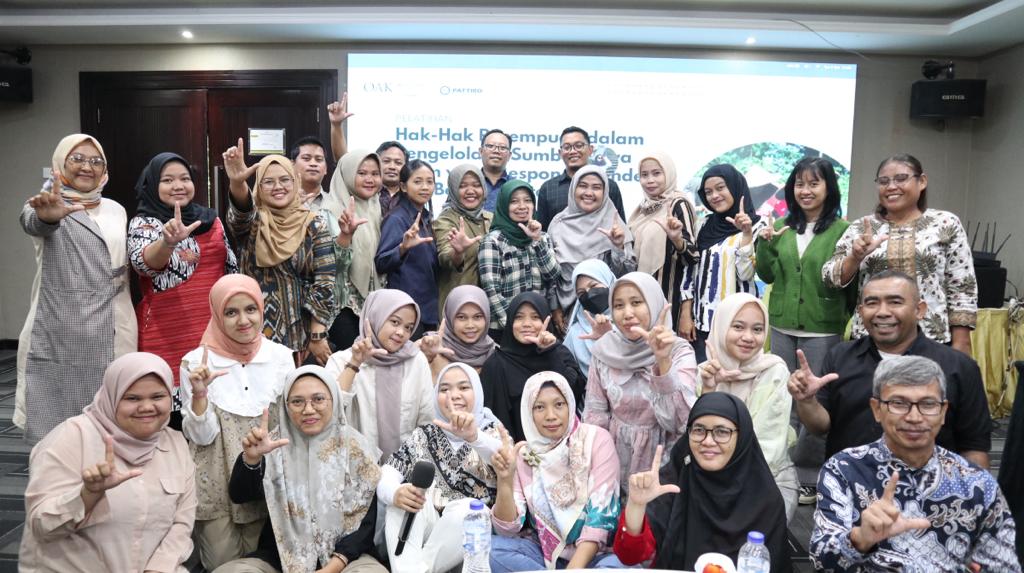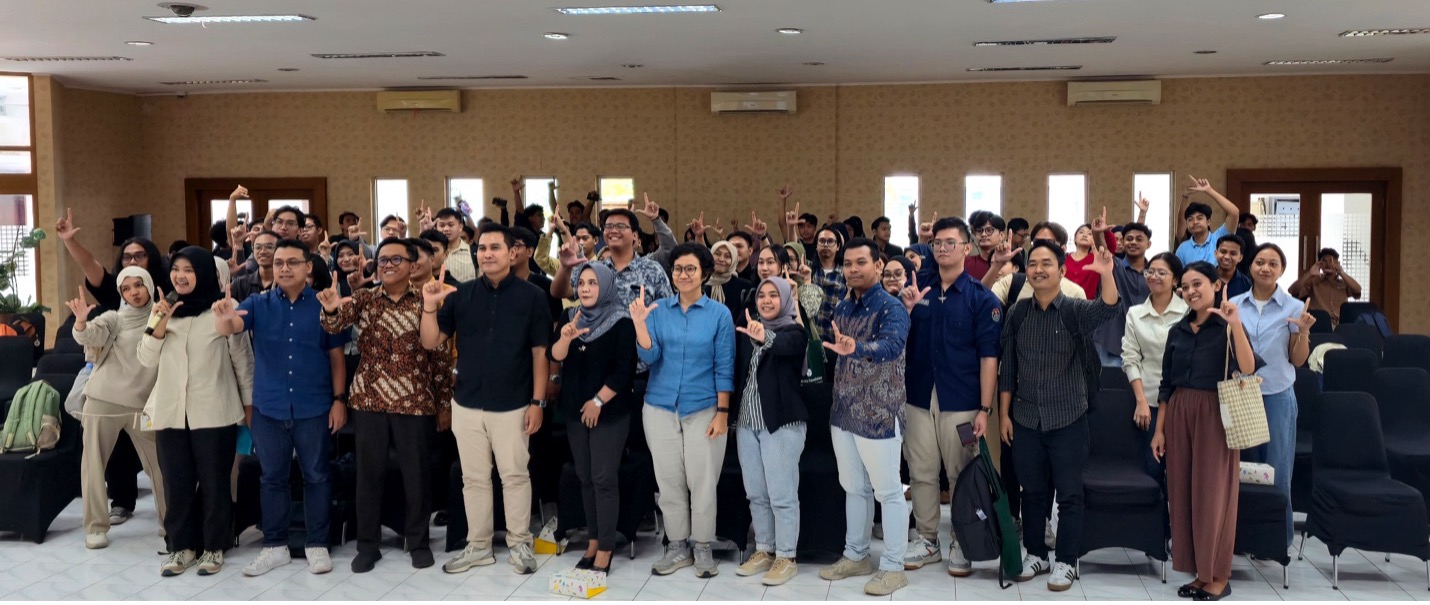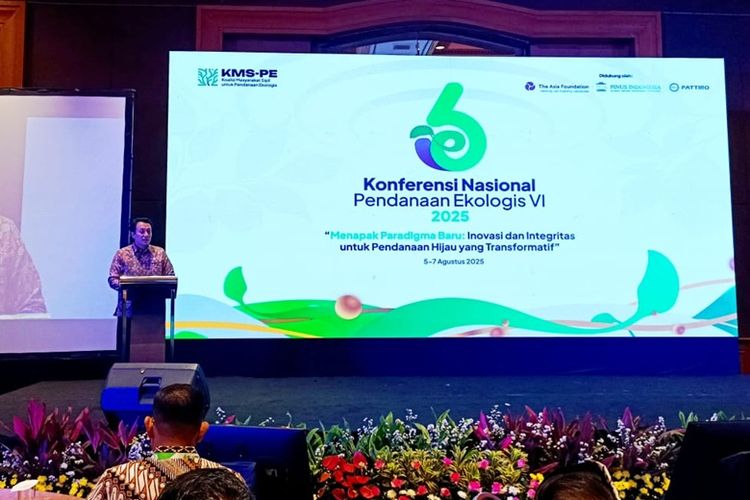
Women’s participation in decision making in Social Forestry is still symbolic, meaning that their presence is present but only limited to the attendance list. At almost every meeting for decision making at the site level, women only play a role in the consumption session and organize the meeting offerings. Meanwhile, men will focus on following the flow of the meeting until the decision is made.
This emerged in discussions at the Training on Women’s Rights in Gender-Responsive and Sustainable Natural Resource Management which was held on 3-6 October 2023 at The Mirah Hotel, Bogor. This activity was organized by PATTIRO and supported by the Oak Foundation and IDRC. Participants in this activity were members of the Social Forestry Business Group (KUPS), Forest Farmers Group (KTH), and companions of the Social Forestry group consisting of 21 women and 4 men.
Forest conditions affected by climate change also have a direct impact on women. In his speech, PATTIRO Executive Director, Bejo Untung explained that women are the group that has the most impact because women have to take care of domestic affairs, such as taking care of children, elderly parents and families with disabilities. Therefore, gender mainstreaming is important in Social Forestry governance so that women’s interests in forest management can be properly accommodated. Apart from that, nature management must also be sustainable to ensure the availability of natural resources for future generations.
Responding to this, Policy Analyst of the Directorate General of Social Forestry and Environmental Partnerships (Ditjen PSKL) of the Ministry of Environment and Forestry (KLHK), Esti Kurniati explained that Social Forestry seeks to eliminate the gender gap in forest management by accommodating women’s participation in the program.
He also added that in the Minister of Environment and Forestry Regulation (Permen LHK) Number 9 of 2021 concerning Social Forestry, there are seven articles that specifically provide equal opportunities for women and men to participate in managing forests through Social Forestry. Previously, in Minister of Environment and Forestry Regulation Number 83 of 2016 there were only two articles that touched on women’s involvement in Social Forestry.
However, in practice, there are still issues of gender inequality in Social Forestry which are rooted in patriarchal culture in the Social Forestry area. Secretary of the Indonesian Social Forestry Management Association (AP2SI), Ika Septya, showed a documentary video in her presentation which was set in one of the Social Forestry areas, specifically in Ibun District, Bandung Regency. In the video, several male sources can be seen providing information regarding the condition of Social Forestry in the area. However, there was only one woman who was willing to be a resource person and be recorded for the video documentary because other women did not dare to speak in public on the grounds that they were not used to it and felt that they were entrusting their aspirations to men.
Ika also added that women’s work in the domestic sphere is not taken into account in the economic system so that women’s work is not recognized. In fact, on average women work in the domestic sector 15-18 hours per day. Based on his experience when attending an invitation to apply for Social Forestry, men were the dominant group who came, even though the invitation had invited a group of women.
This was responded to by the Social Forestry Group Assistant from Jari Borneo, Hera Yulita. Hera explained that Jari Borneo had accompanied Social Forestry groups through the SETAPAK program in several locations in Kubu Raya Regency, West Kalimantan. He confirmed that women’s self-confidence is still low and women are still reluctant to get involved in managing social forestry. This is because women’s groups still lack knowledge regarding Social Forestry issues and the assumption that only men’s groups are capable and able to manage forests.
Hera added that the existence of a collective system in Social Forestry work often cannot accommodate women’s opportunities to participate in decision making. “When determining a meeting schedule for decision making, it is often by agreement that the meeting is held in the evening. “Therefore, few women come because they have to take care of domestic affairs at night,” said Hera.
Apart from that, regarding the sustainable management of natural resources (SDA) in Luluk Setyaningsih Social Forestry, the Dean of the Faculty of Nusa Bangsa University (UNB) said that there is a need to pay attention to area management, institutions and community businesses. A sustainable natural resource management approach needs to pay attention to environmental stability, economic development and the use of the latest technology.
Participants a was also invited to have an audience with the Ministry of Environment and Forestry’s Planning Bureau. The presence of the training participants was welcomed by the Head of the KLHK Planning Bureau, Apik Karyana. In the audience session, participants conveyed the current conditions regarding Social Forestry in their respective regions. Participants also consulted regarding solutions to the legality of KUPS and KTH which had not yet been provided by the relevant regional governments in several regions.
Apart from holding audiences, participants also visited the Citarum Ciliwung River Watershed Management Center to learn about the Forest and Land Rehabilitation (RHL) program. After visiting BPDAS Citarum Ciliwung, participants visited the Rumpin Nursery Center to see first hand the process of sowing plant seeds for the RHL Program.




